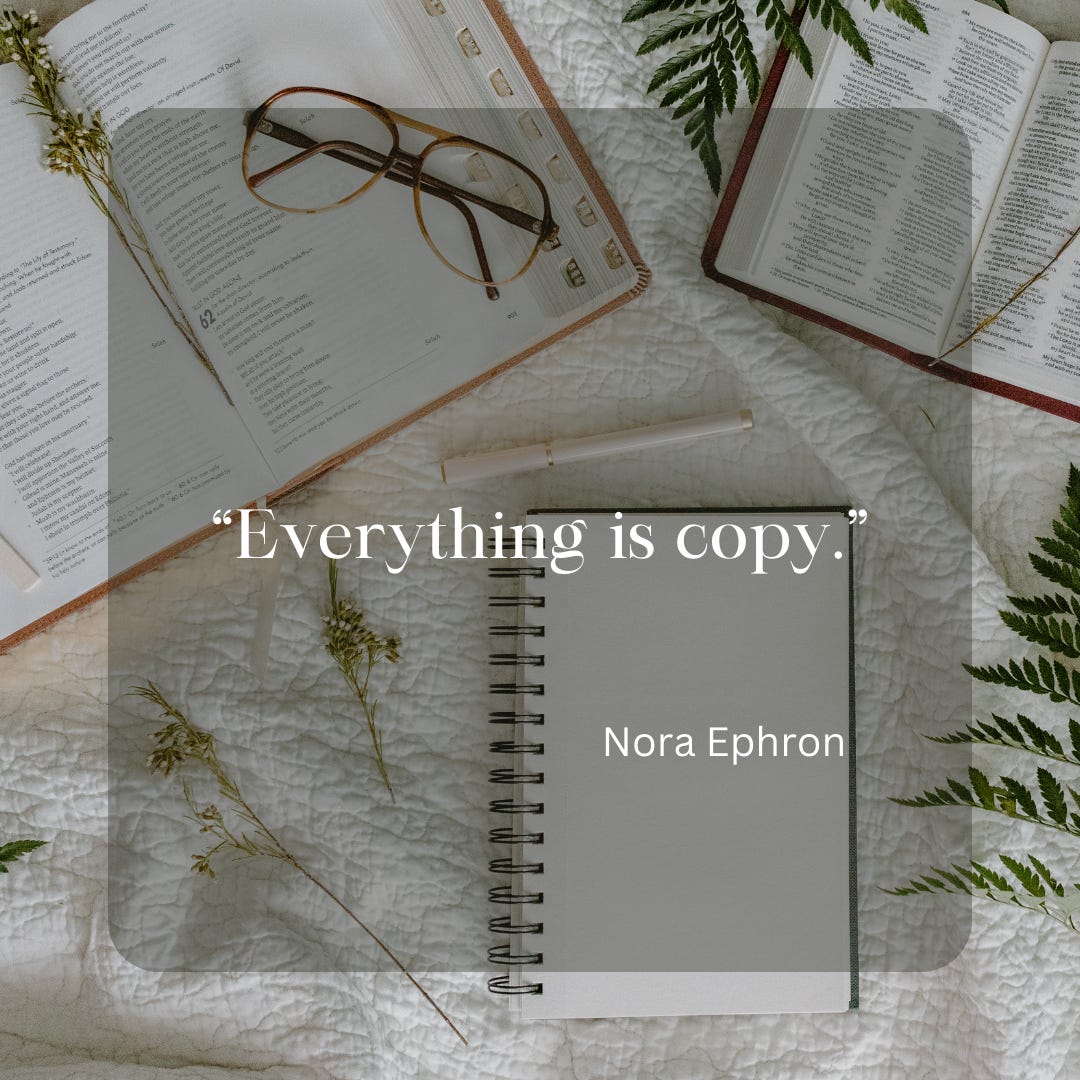Finding Inspiration & Keeping a Writer's Notebook
Ideas for writing can appear anywhere and at any time. Your life experiences are a great source of inspiration for writing. The late screenwriter and director Nora Ephron (When Harry Met Sally…, Sleepless in Seattle, You’ve Got Mail) wrote by the motto “Everything is copy” and frequently mined her life experiences for inspiration. The events and people in Ephron’s life provided information that helped fill in details for characters and situations in her work. Pay close attention to your surroundings and the people you encounter. Real-life experiences, current events, and the stories of people you meet can provide rich material for writing. Personal experiences and observations often add authenticity to your work.
Of course, if you plan to use personal experiences in your work, you will want to consider the potential fallout that can come with the practice. For example, there was a high school playwright who wrote a story about an experience she had in her own life. The play was selected for performance in a young playwrights festival and her school arranged a field trip for students to the festival in support. Unfortunately, the writer had a little much detail included in the script, which led to some hard feelings and embarrassment afterwards. So, even though “everything is copy”, it is something you’ll want to do with caution!
A writer can also seek inspiration from other art forms such as art, music, and film. Of course, you can find inspiration in theatre with the shows that you see and plays that you read. Use the notebook to record your reflection on these works. Analyze the themes, emotions, and storytelling techniques used in these art forms and consider how they can be adapted into your writing.
Since this inspiration can strike at any time, having a way to record these moments and to reflect upon them is great practice for a writer. I have different notebooks for different projects, including hobbies. I also keep a personal journal for reflection. My notebooks are bound books and I keep one in my bag at all times. Moleskine’s large, hardcover notebooks are my favorite, but I’ve recently found the AmazonBasics Classic Notebook to be a good, budget-friendly option. When I don’t have that bag, I also use digital apps like Google Keep and Evernote. I find that I often forget about the notes made digitally since I don’t review those apps as often as I do the paper notebook. Perhaps I may start using a pocket-sized notebook for the moments when it doesn’t make sense to have my bag with me. That would help when I’m in the theatre and can’t use my phone during a performance.
There are many paper notebooks and apps to try. Ultimately, the key is to find something that works with your lifestyle and budget and to develop the habit of taking notes when the inspiration strikes. This will help ensure that when it comes time to write a new play, or when a case of writer’s block has you stalled on what to do next.

Comments
Post a Comment
Thanks for your comments. The page moderator will review them soon!